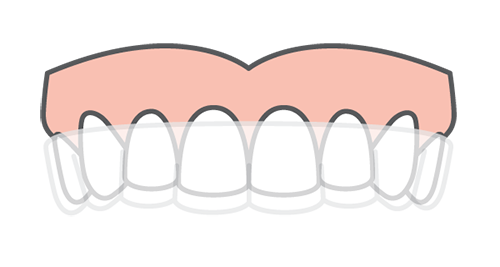Your TMJ, or temporomandibular joint, is your jaw joint that connects your lower mandible to your skull. It’s made of a complex network of tissues, ligaments, nerves, and the joint itself. Being humans, we tend to hold a lot of our stress in this joint, contributing to teeth grinding and clenching, jaw pain, and TMJ dysfunction (TMD) that radiates into headaches, migraines, and chronic pain and tension. If any of this sounds familiar, we want you to know we can help!
TMJ dysfunction can develop for many reasons—one of the most common being, of course, stress as we mentioned before. But there are other contributing factors as well including teeth grinding and clenching (or bruxism which can be both a cause and a symptom), bite misalignment, harmful habits like fingernail chewing, and physical damage or injury to the joint structures. TMJ dysfunction can cause serious harm to your teeth and make it hard to live your daily life without pain.

We know it can be hard to prioritize healthcare or dental treatments when the matter is not immediately life-threatening or debilitating, but seeking solutions today can prevent a whole lot of pain and suffering tomorrow—not to mention a lot of money and time in the dental chair repairing or replacing teeth that have been worn down over time. If the cost of treatment is a concern for you, we are happy to offer flexible financing options.
The first thing you should know about TMJ/TMD is 90% of people seeking care are women in their childbearing years. There may be many factors contributing to this gender discrepancy, including stress levels, hormone receptors, physical joint structure differences, and other joint problems like arthritis. Most of the symptoms are contained within the jaw, but they can also radiate into your entire face, head, neck, shoulders—even your posture can be impacted by TMJ dysfunction.
The most obvious sign of a TMJ disorder is jaw pain. Other common symptoms include teeth grinding and clenching (bruxism); joint popping, locking, or clicking; chronic headaches and migraines; dizziness or ringing in the ears (tinnitus); swelling and muscle spasms; and even neck and shoulder pain. If any of this sounds familiar, you should let us know at your next check-up. But we may already be aware of the problem if we see broken, cracked, worn-down molars caused by grinding and clenching.
If your teeth have already started to show signs of TMJ dysfunction (cracks, chips, breakage), we can easily repair the damage with our 3D imaging technology and modern restorative methods.
If you’ve read this far, and you’re nodding along with us (or holding your jaw in pain), we’re not just here to educate you, we’re also here to provide solutions. The first step in determining the best solution for you is to pinpoint the cause of the problem. With something so complex as TMJ, it can be difficult to nail down a single culprit, but a thorough examination with the help of our advanced technology can help provide the clues we need. Anyone suffering from TMJ/TMD (sometimes called TMJD!) can benefit from self-awareness practices, habit correcting, and home care techniques. If you feel yourself clenching and grinding, STOP!
If you tend to chew on your fingernails, your lips, or other objects like pens and pencils, it would serve you well to quit — today! You can also practice gentle stretching and massage techniques to relieve tension. If bite malocclusion is your problem, we can correct your teeth and bite alignment with orthodontics, and minimize pressure points with restorative techniques. But one of our most tried and true TMJ treatments is a nightguard you wear during sleep to provide a soft cushion for your teeth and allow your jaw to rest and heal overnight. Imagine waking up rested and free of tooth and jaw pain! Aaaaah… what a relief!

You deserve to live your life to the fullest, without chronic myofascial pain associated with TMJ/TMD. Schedule a consultation with your Benbrook dentists, Drs. Cindy and Ryan Knight at Chisholm Trail Dental today to get started.
Schedule Now